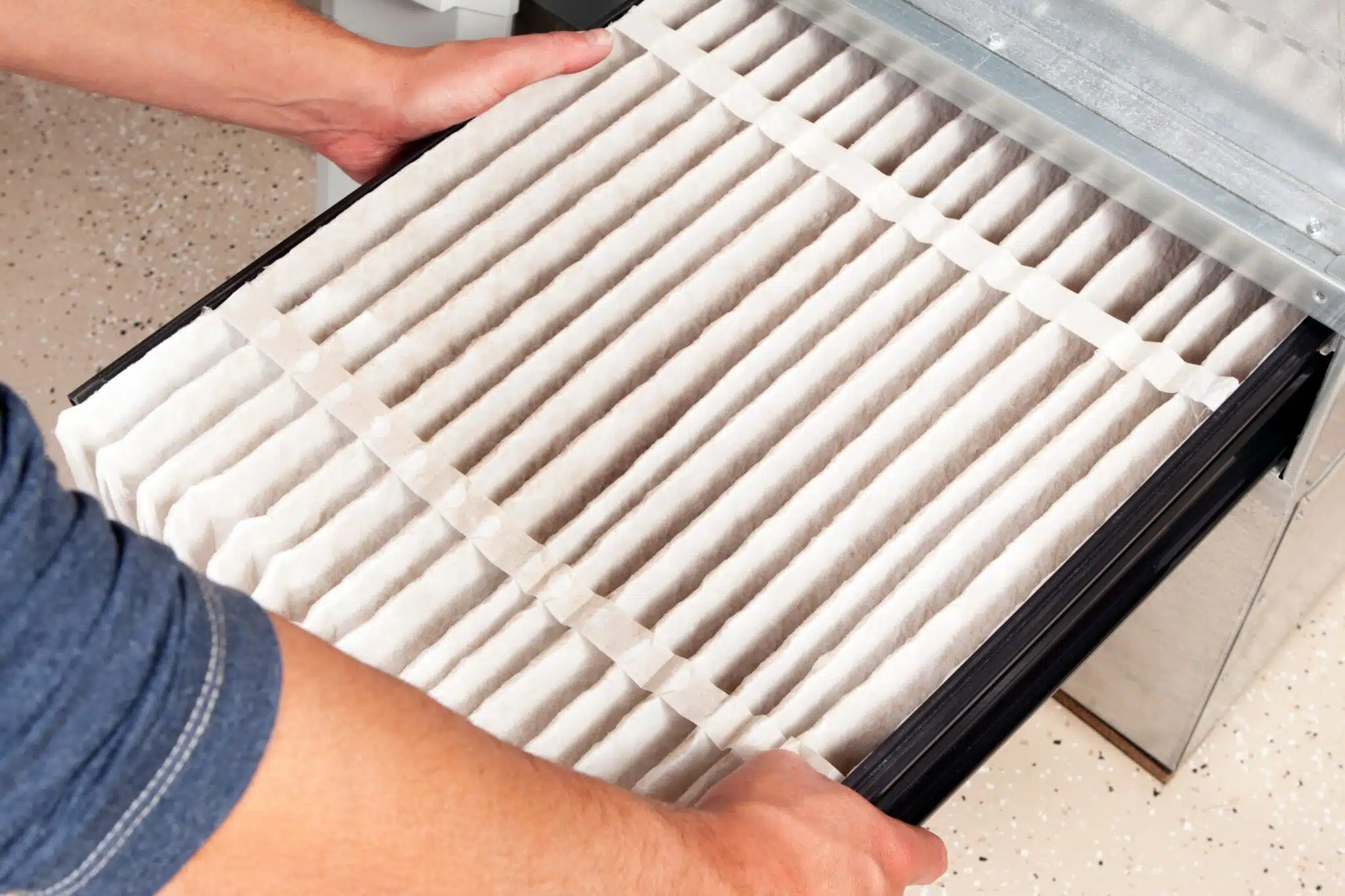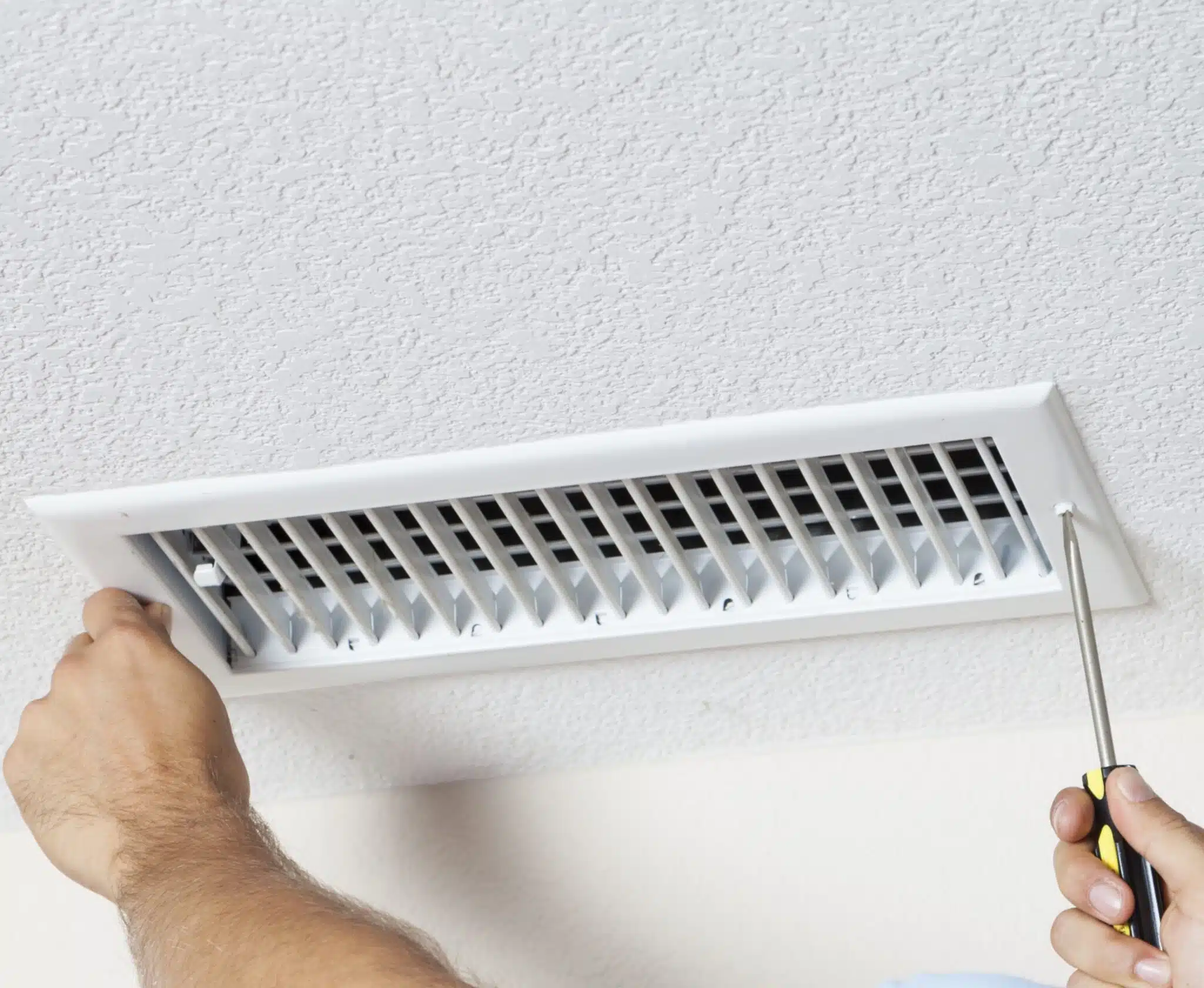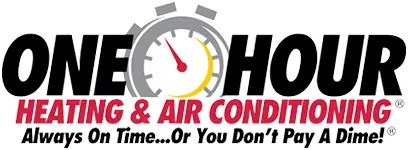Ensuring the air we breathe indoors is clean and healthy has never been more important. Regular HVAC inspections play a crucial role in maintaining this indoor air quality. These inspections can identify and rectify potential issues before they compromise your home’s air. Especially in areas like Lancaster, PA, where seasonal changes can affect air quality, staying proactive is key.
In cities like Harrisburg, PA, the changing seasons bring a variety of air quality challenges. HVAC inspections become not just beneficial but essential for keeping indoor environments safe. These checks help ensure that heating, ventilation, and air conditioning systems are functioning optimally. This is vital for filtering out pollutants and maintaining a consistent, comfortable indoor climate.
But HVAC inspections offer more than just a way to keep the air clean. They also provide peace of mind, knowing that your system is running efficiently. This efficiency is crucial for preventing unexpected breakdowns that could affect your comfort. Regular inspections can catch small issues before they turn into larger, more expensive problems.
Finally, investing in periodic HVAC inspections can significantly improve your home’s air quality. This practice supports a healthier living environment, reducing the risk of respiratory issues and allergies. For residents of Lancaster, PA, and Harrisburg, PA, embracing regular HVAC inspections is a smart step toward ensuring their homes are safe and comfortable havens.
Understanding the Link Between HVAC Inspections and Air Quality
Understanding the link between HVAC inspections and air quality begins with recognizing how these systems influence our environment. During an inspection, professionals check for dust, pollen, and other pollutants that can degrade air quality. They ensure that filters are clean and functioning properly, which is essential for capturing contaminants. This process is vital in places like Lancaster, PA, where local conditions can introduce various airborne particles into homes.
HVAC inspections also involve examining the system’s components to ensure they work efficiently. When parts are in optimal condition, the system circulates air more effectively. This circulation is crucial for diluting indoor pollutants and introducing fresh air from outside. In Harrisburg, PA, for example, efficient systems help manage humidity levels, reducing the potential for mold growth and other air quality issues.
Regular maintenance through HVAC inspections can prevent unexpected system failures that impact air quality. A well-maintained system reduces the risk of malfunctions that could interrupt air filtration and circulation. By catching issues early, homeowners can avoid scenarios where their indoor air becomes stale or polluted. This proactive approach is especially important during seasons when windows are closed, and indoor air circulates less.
Lastly, HVAC inspections contribute to a healthier living environment by ensuring the system does not emit harmful substances. Technicians check for leaks or damage that could release gases or other pollutants into the home. This attention to detail ensures that the air in your home remains clean and safe to breathe. For residents in Lancaster, PA, and Harrisburg, PA, regular HVAC inspections are a key step in safeguarding their indoor air quality and overall health.

The Role of Filters in Maintaining Clean Indoor Air
Filters play a pivotal role in ensuring the air within our homes remains clean, making them a critical focus during HVAC inspections. These inspections assess filter efficiency, confirming they’re trapping pollutants as intended. In Lancaster, PA, where seasonal allergens can be prevalent, effective filters are essential for maintaining indoor air quality. Without regular checks, filters can become clogged, reducing their effectiveness and compromising air cleanliness.
During HVAC inspections, professionals also advise on the best type of filters for your specific needs. This guidance is invaluable, especially in Harrisburg, PA, where urban and seasonal pollutants can vary. High-efficiency filters can capture finer particles, significantly improving air quality. By choosing the right filter, homeowners can ensure their HVAC system is more effective in purifying indoor air.
Another key aspect of HVAC inspections is the timely replacement of filters. Inspectors can identify when a filter is nearing the end of its useful life. This proactive approach prevents the circulation of polluted air, ensuring the home environment remains healthy. Regular replacement keeps the system running smoothly, avoiding unnecessary strain on its components.
Lastly, HVAC inspections contribute to the overall longevity of the system. By ensuring filters are clean and functional, inspectors help maintain optimal airflow and system efficiency. This not only enhances air quality but also supports the system’s durability. Residents of Lancaster, PA, and Harrisburg, PA, benefit from this attention to detail, enjoying cleaner air and a more comfortable home environment.
How HVAC Inspections Prevent Mold and Pollutant Buildup
HVAC inspections are a critical defense against mold and pollutants in your home. By examining your system thoroughly, technicians can spot areas where moisture might accumulate, creating a breeding ground for mold. This is particularly important in Lancaster, PA, where humidity levels can fluctuate, increasing the risk of mold growth. Regular checks ensure that your system is not only functioning correctly but also preventing moisture buildup that can lead to health issues.
In addition to combating mold, HVAC inspections play a pivotal role in identifying sources of indoor pollutants. Technicians can detect if there are any leaks or malfunctions that could introduce harmful substances into your air. This proactive approach is essential for maintaining a clean indoor environment, especially in urban areas like Harrisburg, PA, where external pollutants can be a concern. Ensuring your system is sealed and functioning properly keeps these pollutants at bay.
Another benefit of regular HVAC inspections is the prevention of dust and debris accumulation. Over time, unchecked systems can become clogged with various particles, which then circulate throughout your home. By keeping your HVAC system clean and well-maintained, technicians help minimize the presence of these airborne irritants. This is crucial for creating a healthier living space, free from the pollutants that can compromise air quality and your family’s health.
Lastly, HVAC inspections support optimal system performance, which directly impacts air quality. When your system is running efficiently, it circulates and filters air more effectively, removing pollutants from your indoor environment. This efficiency is vital for ensuring that your home in Lancaster, PA, remains a safe haven from outdoor allergens and pollutants. Regular inspections guarantee that your HVAC system contributes positively to your indoor air quality, safeguarding your comfort and well-being.

The Impact of Duct Cleaning on Indoor Air Quality
Duct cleaning, often overlooked, is a crucial aspect of HVAC inspections that significantly influences indoor air quality. During these inspections, professionals meticulously remove dust, debris, and other contaminants from ductwork, ensuring clean air circulates throughout your home. This process is especially important in Lancaster, PA, where seasonal activities can introduce a variety of pollutants into the air system. By keeping ducts clean, HVAC inspections help maintain a healthier living environment, free from airborne irritants.
In addition to removing contaminants, HVAC inspections also check for duct leaks, which can compromise the system’s efficiency and indoor air quality. Even small leaks can allow pollutants and outdoor air to enter the system, affecting the home’s comfort and safety. This step is vital in Harrisburg, PA, where urban pollution can easily infiltrate homes through compromised ductwork. Ensuring ducts are sealed properly during inspections can significantly enhance the air quality inside.
Another benefit of duct cleaning during HVAC inspections is the improvement of system performance. When ducts are clean and free from obstruction, air flows more efficiently, reducing the strain on your HVAC system. This efficiency not only supports a comfortable home environment but also contributes to the longevity of the system. Residents in both Lancaster and Harrisburg, PA, can enjoy the dual benefits of improved air quality and system durability through regular HVAC inspections.
Lastly, HVAC inspections, including duct cleaning, play a key role in preventing the circulation of allergens and pathogens. By removing these harmful particles from the air system, inspections ensure that the air in your home remains clean and safe to breathe. This aspect is particularly crucial for families with allergies or respiratory issues, making HVAC inspections an essential practice for maintaining a healthy indoor environment. Through these thorough checks, homeowners can rest assured that their indoor air quality is protected.
HVAC Inspections: A Key to Efficient System Performance
HVAC inspections are not only crucial for maintaining indoor air quality but also for ensuring the system’s efficiency. In Lancaster, PA, professionals conduct thorough checks to guarantee that HVAC systems operate at peak performance. This optimization process involves adjusting settings, cleaning components, and identifying any potential issues that could hinder efficiency. As a result, homeowners enjoy a comfortable, consistent indoor climate without unnecessary strain on their systems.
In Harrisburg, PA, HVAC inspections play a vital role in energy conservation. By ensuring that systems run efficiently, inspections help reduce the energy needed to heat or cool a home. This efficiency is achieved through the meticulous examination of the HVAC unit, ensuring all parts are in optimal condition and functioning together seamlessly. Consequently, residents can experience a noticeable improvement in their system’s performance, contributing to a more sustainable household.
Regular HVAC inspections also extend the lifespan of your system. Technicians spot early signs of wear and tear, addressing them before they escalate into major problems. This proactive approach keeps the system running smoothly for longer, delaying the need for costly replacements. Homeowners thus benefit from a reliable HVAC system that supports their comfort year-round without frequent interruptions for repairs.
Furthermore, HVAC inspections contribute to a safer home environment. By checking for any electrical issues, gas leaks, or other hazards, technicians ensure the system poses no risk to the household. This thorough examination gives homeowners peace of mind, knowing their HVAC system not only performs efficiently but also safely. Through regular inspections, families in Lancaster and Harrisburg, PA, can rest assured their heating and cooling systems support their well-being in every aspect.
Identifying and Resolving Common Air Quality Issues
HVAC inspections are pivotal in identifying common air quality issues that can affect homes in Lancaster, PA. These inspections often reveal hidden problems such as dust accumulation, mold growth, and inefficient air filtration. By addressing these issues early, homeowners can prevent the spread of allergens and pollutants. This proactive approach ensures a healthier living environment, free from contaminants that can harm respiratory health.
In Harrisburg, PA, HVAC inspections also play a crucial role in resolving ventilation problems. Technicians assess the system’s ability to circulate and exchange indoor air with fresh outdoor air effectively. Proper ventilation is essential for diluting indoor pollutants and reducing humidity levels, which in turn, minimizes the risk of mold and mildew. Through these inspections, residents can enjoy improved air quality and a more comfortable home.
Another common issue that HVAC inspections uncover is the presence of volatile organic compounds (VOCs) from household products. These compounds can linger in the air and pose health risks if not properly ventilated. Inspectors recommend solutions to enhance the system’s filtration capabilities, ensuring harmful chemicals are efficiently removed from the indoor environment. This step is vital for maintaining a safe and toxin-free home.
Lastly, HVAC inspections help in pinpointing outdated or malfunctioning equipment that can compromise air quality. Technicians advise on necessary repairs or upgrades to ensure the system operates efficiently and effectively filters out pollutants. By keeping the HVAC system in top condition, homeowners can avoid air quality issues that contribute to discomfort and health problems. Regular inspections are therefore essential for safeguarding the well-being of residents.
The Benefits of Regular HVAC Maintenance Beyond Air Quality
Regular HVAC maintenance offers significant benefits beyond just improving air quality. It enhances the overall efficiency of your heating, cooling, and ventilation systems. This efficiency means your HVAC system works less to achieve the desired indoor temperature, leading to less wear and tear over time. In Lancaster, PA, where weather conditions can vary greatly, this ensures your system remains reliable when you need it most.
In addition to prolonging the lifespan of your HVAC system, regular inspections can lead to energy savings. By ensuring that your system is running at peak efficiency, you use less energy to heat or cool your home. This not only benefits the environment by reducing energy consumption but also helps homeowners in Harrisburg, PA, keep their utility bills in check. Efficient systems distribute air more evenly, eliminating hot and cold spots for a more comfortable living space.
Another advantage of consistent HVAC inspections is the early detection of potential safety hazards. Technicians can spot issues like gas leaks, electrical faults, or fire risks before they escalate into serious problems. This proactive approach keeps homes in Lancaster, PA, safe, offering peace of mind to homeowners. Ensuring your system is in good working order can prevent accidents and protect your property.
Lastly, regular HVAC maintenance supports warranty requirements. Many manufacturers require proof of annual maintenance to keep warranties valid. This means that by scheduling regular inspections, homeowners in Harrisburg, PA, not only ensure their system’s efficiency and safety but also protect their investment. Keeping up with maintenance requirements ensures that if something does go wrong, you’re covered.
Preparing Your Home for a Professional HVAC Inspection
Preparing your home for a professional HVAC inspection ensures that the process is smooth and efficient. Before the technician arrives, make sure to clear any clutter from around your heating and cooling units. This not only facilitates easy access but also allows for a thorough examination of the system. In Lancaster, PA, a clean workspace can help the inspector identify issues more quickly, ensuring your system’s optimal performance.
It’s also wise to replace or clean your HVAC filters before the inspection. Clean filters improve air quality and system efficiency, allowing the technician to accurately assess how well your system is operating. In Harrisburg, PA, this simple step can make a significant difference in the inspection outcome, highlighting the importance of regular filter maintenance.
Another helpful preparation is to list any issues you’ve noticed with your HVAC system. Whether it’s unusual noises, inconsistent temperatures, or other concerns, sharing these with your inspector can direct their attention to potential problems. This proactive communication ensures that your concerns are addressed, enhancing the effectiveness of the HVAC inspection.
Lastly, ensure that all vents and registers in your home are open and unblocked. This allows the technician to check airflow and identify any blockages or issues with air distribution. Proper airflow is crucial for maintaining comfortable temperatures and good air quality in your home, making this step an important part of preparing for an HVAC inspection.
Frequently Asked Questions
How often should HVAC inspections be done?
Experts recommend having HVAC inspections at least once a year. This ensures your system runs efficiently and improves indoor air quality. However, checking it twice a year, in spring and fall, is even better. Regular checks help catch any issues early, keeping your home’s air clean and safe.
Can HVAC inspections improve air quality?
Yes, HVAC inspections can significantly enhance the air quality inside your home. During these checks, professionals clean and replace filters, which trap dust, pollen, and other pollutants. They also identify and fix any issues that could lead to poor air circulation. By maintaining your system regularly, you ensure a healthier, cleaner environment for your family.
What are common HVAC issues?
Common HVAC issues include clogged filters, which reduce airflow and lower air quality. Leaky ductwork can also lead to inefficient heating and cooling. Thermostat problems often cause inconsistent temperatures throughout your home. Lastly, regular wear and tear on your system can affect its performance over time.
What is included in HVAC inspections?
During HVAC inspections, professionals examine your system thoroughly. They check the condition of filters, ductwork, and all mechanical parts. Inspectors also test the system’s efficiency and airflow to ensure optimal performance. This process helps identify any potential issues early, keeping your home’s air quality at its best.
How long does an HVAC inspection take?
An HVAC inspection typically takes about one to two hours to complete. Skilled technicians work efficiently to examine your system thoroughly during this time. They ensure every component is checked for optimal performance. This process helps maintain your home’s air quality, keeping it clean and healthy.





